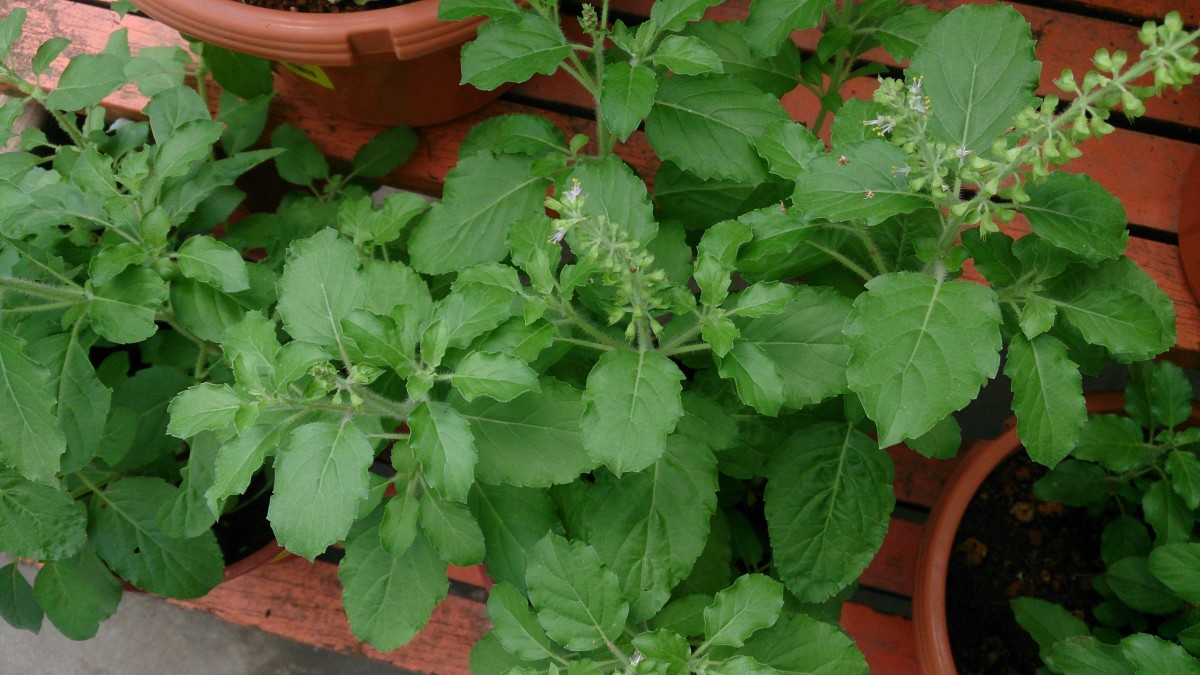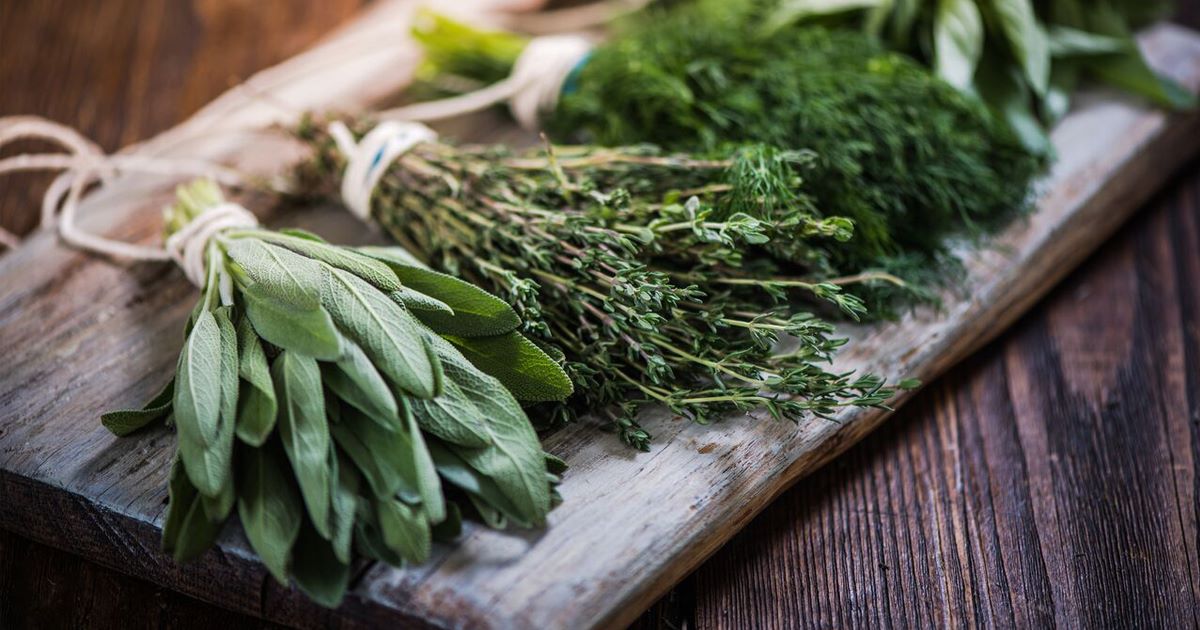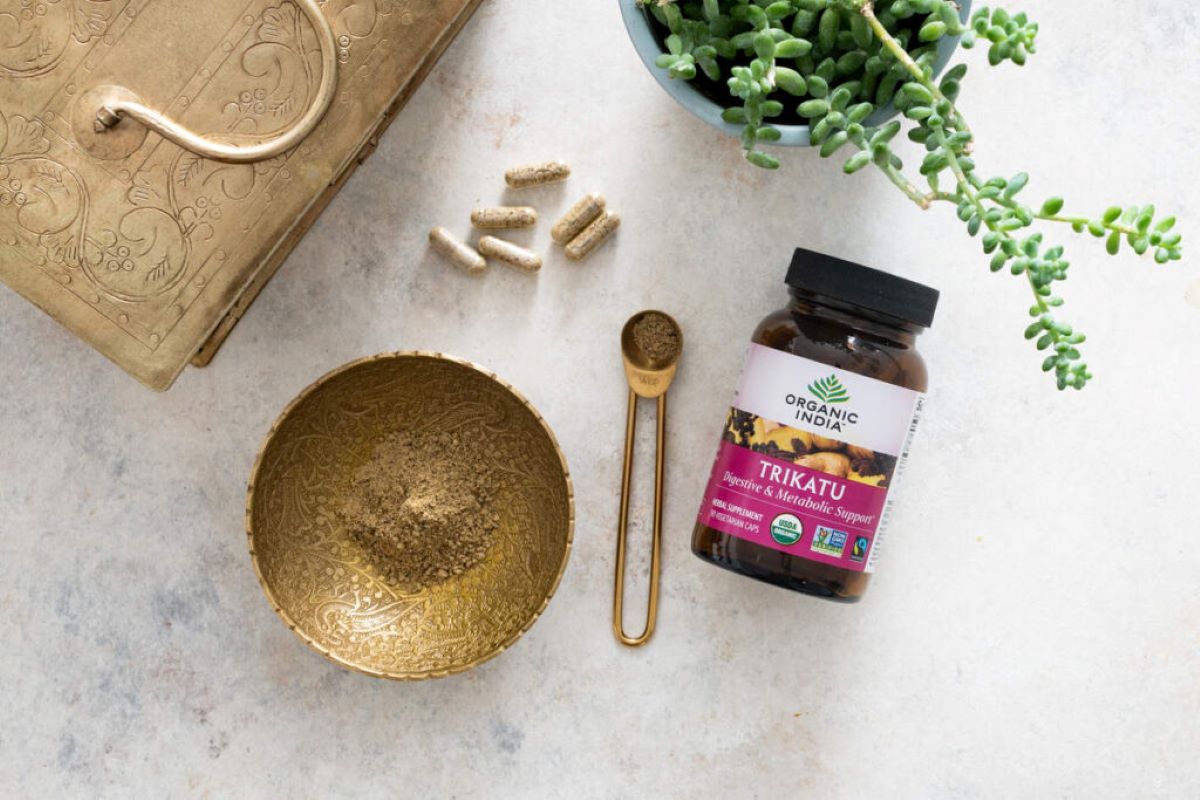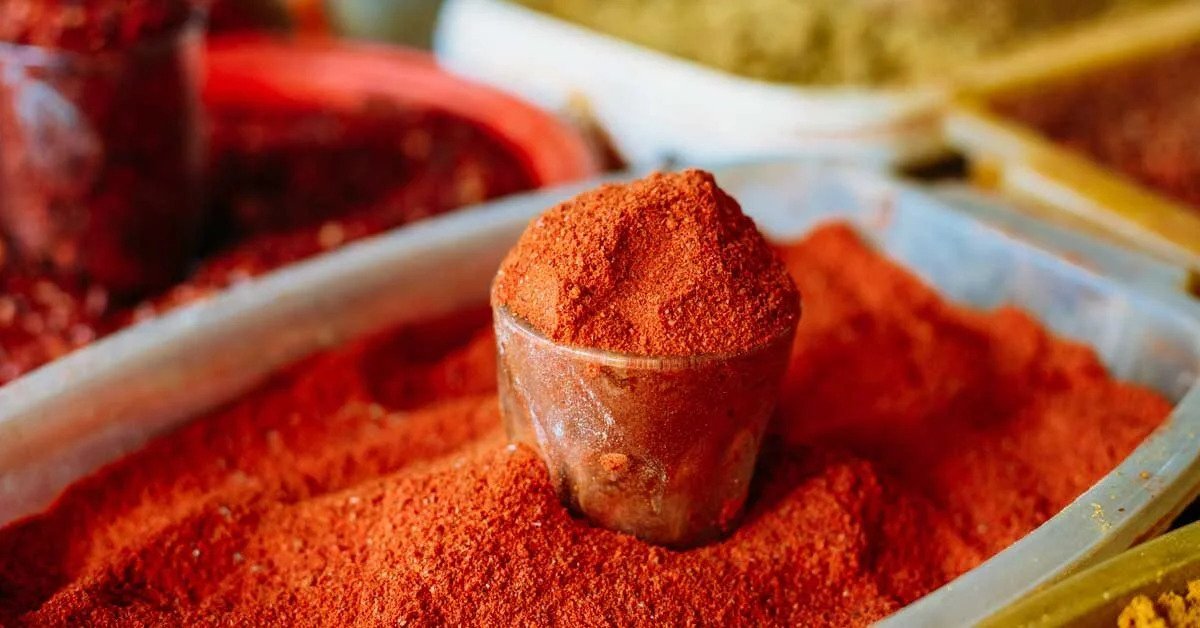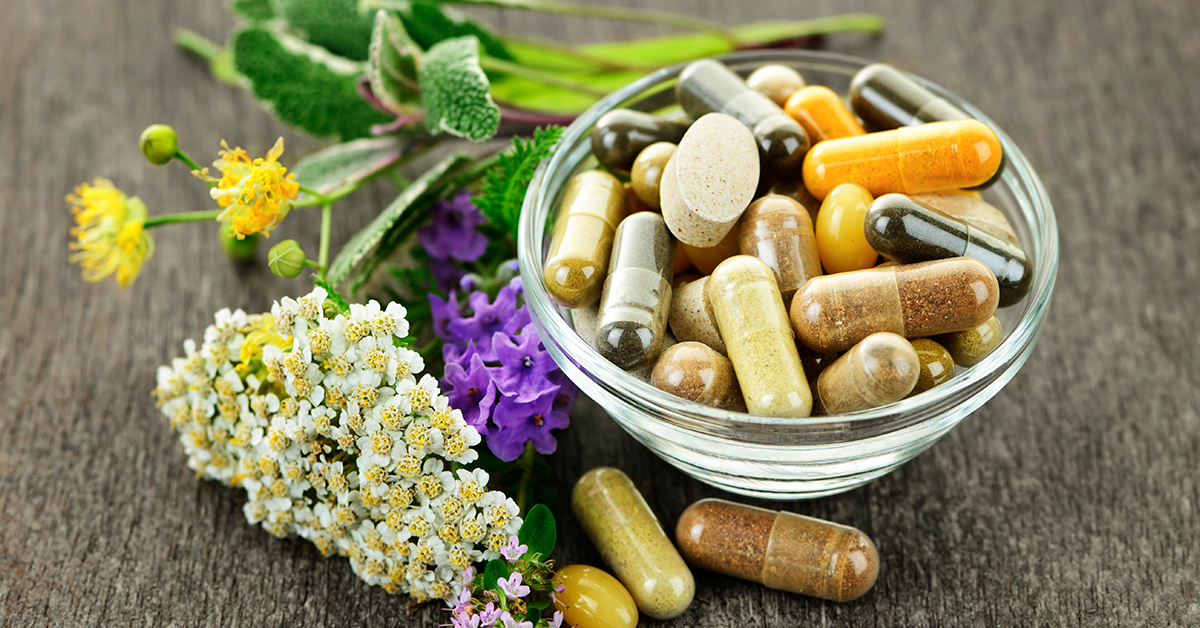Home>Gardening News and Trends>Gardening Trends>What Herbs Are Good For The Heart
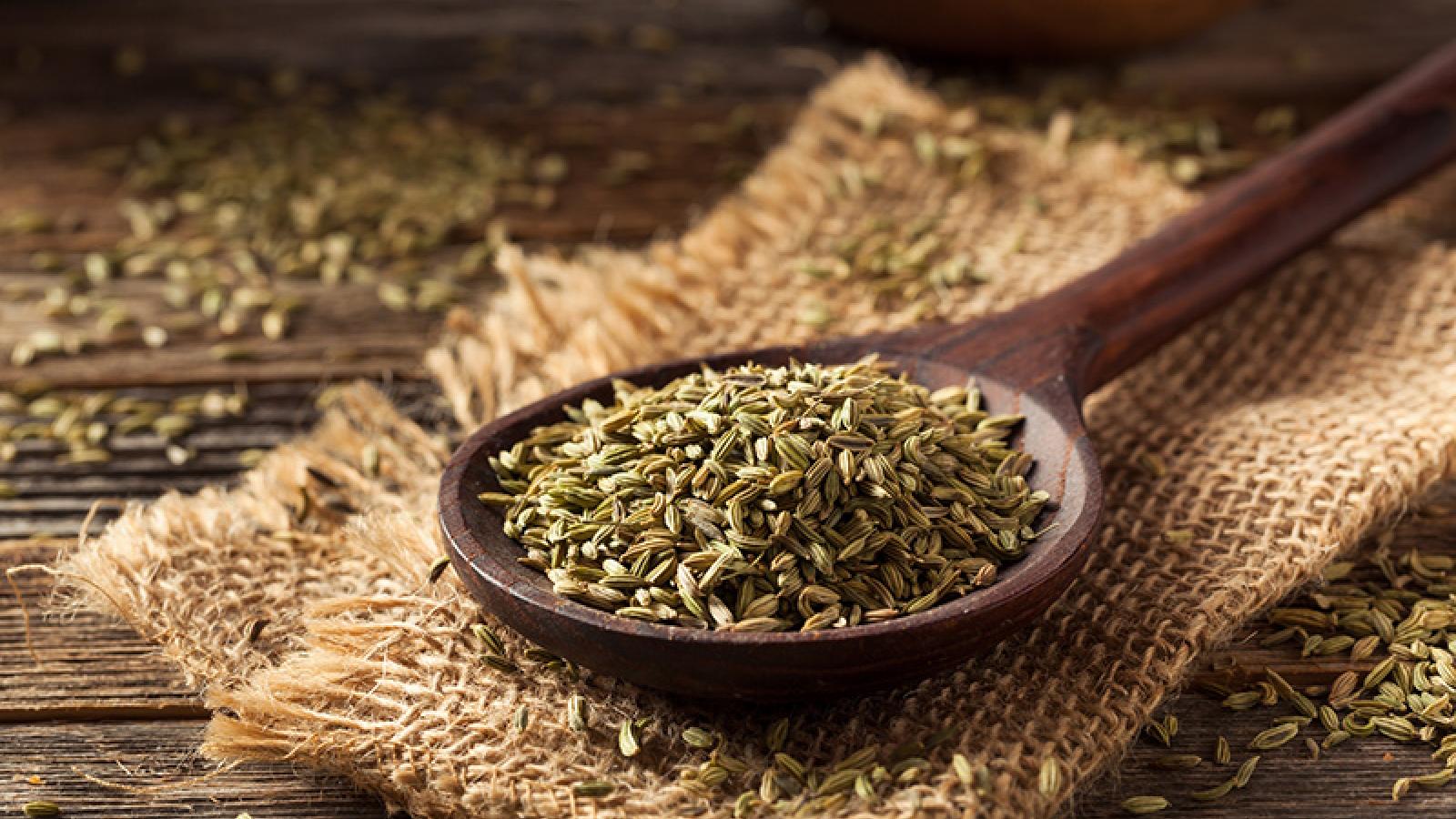

Gardening Trends
What Herbs Are Good For The Heart
Modified: January 22, 2024
Discover the latest gardening trends and find out which herbs are beneficial for heart health. Improve your garden and support your cardiovascular well-being all in one.
(Many of the links in this article redirect to a specific reviewed product. Your purchase of these products through affiliate links helps to generate commission for Chicagolandgardening.com, at no extra cost. Learn more)
Table of Contents
Introduction
Welcome to the world of herbs that are not only flavorsome but also offer numerous health benefits, especially for the heart. Incorporating these herbs into your diet can help improve cardiovascular health and support overall well-being.
The heart is a vital organ that pumps blood throughout our body, supplying oxygen and nutrients to every cell. It is important to take care of our heart to prevent the risk of cardiovascular diseases. While a healthy lifestyle, including a balanced diet and regular exercise, forms the foundation for heart health, certain herbs can provide an extra boost in maintaining cardiovascular well-being.
Herbs have been used for centuries in traditional medicine systems for their medicinal properties. In recent years, scientific research has also shed light on the beneficial effects of various herbs on heart health. These herbs are rich in antioxidants, anti-inflammatory compounds, and other bioactive substances, which can help reduce the risk of heart diseases, lower cholesterol levels, regulate blood pressure, and enhance overall heart function.
In this article, we will explore ten herbs that are good for the heart. From the well-known garlic to the lesser-known oregano, each of these herbs possesses unique properties that make them a great addition to a heart-healthy diet. So let’s dive in and discover the natural wonders that can support our heart health.
Garlic
Garlic, also known as Allium sativum, is not only a popular culinary ingredient but also a powerful herb for heart health. It has been used for centuries in various cultures for its medicinal properties. Garlic contains a compound called allicin, which is responsible for many of its health benefits.
Studies have shown that garlic can help lower blood pressure by relaxing blood vessels and improving blood flow. It also has anti-inflammatory properties that can reduce inflammation in the arteries and prevent the formation of plaque. Garlic may also help lower cholesterol levels by inhibiting the enzyme responsible for cholesterol production.
Furthermore, garlic has been found to have antioxidant properties, which can help protect the heart from oxidative stress and prevent damage to the blood vessels.
Adding garlic to your diet is easy. You can use fresh garlic in your cooking, add it to sauces and dressings, or simply take garlic supplements if you prefer. However, it is important to note that if you are taking blood-thinning medications, it is best to consult with your healthcare provider before adding garlic supplements to your routine.
So, why not spice up your meals with some garlic and give your heart some extra love?
Hawthorn
Hawthorn, scientifically known as Crataegus, is a herb that has been traditionally used for centuries to support heart health. It is derived from the berries, leaves, and flowers of the hawthorn plant and is rich in antioxidants and flavonoids.
Research suggests that hawthorn may help improve cardiovascular function by dilating blood vessels, reducing blood pressure, and increasing blood flow to the heart. It is also believed to have positive effects on cholesterol levels, helping to reduce LDL (bad) cholesterol and increase HDL (good) cholesterol levels.
In addition to its cardiovascular benefits, hawthorn has mild diuretic properties, which can aid in reducing water retention and supporting kidney function. It is also known to have calming effects on the nervous system, helping to relieve stress and anxiety.
Hawthorn can be consumed in various forms, including teas, tinctures, capsules, or extracts. It is important to follow the recommended dosage instructions and consult with a healthcare professional before adding hawthorn supplements to your regimen, especially if you have pre-existing medical conditions or are taking medications.
So, consider incorporating hawthorn into your routine to promote a healthier heart and overall well-being.
Turmeric
Turmeric, a vibrant yellow spice commonly used in curry dishes, is not only flavorful but also offers numerous health benefits, including supporting heart health. The main active compound in turmeric is called curcumin, which has powerful antioxidant and anti-inflammatory properties.
Research has shown that curcumin can help reduce inflammation in the body, including inflammation in the blood vessels. Chronic inflammation in the arteries can contribute to the development of heart disease, so incorporating turmeric into your diet may help lower the risk.
Curcumin has also been found to improve endothelial function, which is the lining of the blood vessels. By enhancing endothelial function, turmeric can promote better blood flow and reduce the risk of blood clots.
In addition to its cardiovascular benefits, turmeric has been studied for its potential to reduce LDL cholesterol levels, prevent the oxidation of cholesterol, and improve overall lipid profile. It also possesses mild blood-thinning properties, which can help prevent the formation of blood clots.
To reap the benefits of turmeric, consider adding it to your cooking or incorporating it into a daily supplementation routine. However, it is important to note that the bioavailability of curcumin is relatively low, so it may be beneficial to consume turmeric with black pepper, which contains piperine, a compound that enhances the absorption of curcumin.
With its bright color and health-promoting properties, turmeric is a wonderful addition to any heart-healthy diet.
Ginger
Ginger, a popular spice known for its distinct flavor and aroma, has been used for centuries in traditional medicine for its various health benefits. It contains several bioactive compounds, including gingerol, which contribute to its medicinal properties.
Studies have shown that ginger may have cardiovascular benefits, including reducing blood pressure and cholesterol levels. Its anti-inflammatory properties help reduce inflammation in the arteries and improve overall heart health.
Research suggests that ginger may also have antiplatelet and anticoagulant effects, which can help prevent blood clotting and reduce the risk of cardiovascular events such as heart attacks and strokes.
In addition to its cardiovascular benefits, ginger has been traditionally used to alleviate nausea and gastrointestinal discomfort. It may also help regulate blood sugar levels and support weight management, which are important factors in maintaining heart health.
Ginger can be consumed fresh, dried, or in the form of supplements, teas, or extracts. Adding ginger to your meals, infusing it in hot water to make a soothing ginger tea, or incorporating it into smoothies are all great ways to reap its benefits.
As with any dietary supplement, it is advisable to consult with a healthcare professional, especially if you have any underlying health conditions or are taking medications, before adding ginger to your routine.
So, why not spice up your meals and give your heart some gingerly love?
Cayenne Pepper
Cayenne pepper, also known as red chili pepper, is not only a popular spice in cooking but also a herb that offers numerous health benefits, including support for heart health. The compound responsible for its fiery heat, called capsaicin, is also responsible for many of its medicinal properties.
Research has shown that cayenne pepper may help improve cardiovascular health by reducing blood pressure and improving blood circulation. It acts as a vasodilator, helping to widen the blood vessels and enhance blood flow. This can help lower the risk of high blood pressure, prevent the formation of blood clots, and improve overall heart function.
Cayenne pepper has also been found to have cholesterol-lowering effects. It can help reduce LDL (bad) cholesterol levels and triglycerides while increasing HDL (good) cholesterol levels. By improving lipid profile, cayenne pepper supports a healthy cardiovascular system.
In addition to its cardiovascular benefits, cayenne pepper has been studied for its potential to boost metabolism and promote weight loss. Maintaining a healthy weight is important for heart health, as it reduces the risk of developing heart diseases.
Adding cayenne pepper to your meals is a great way to incorporate its benefits into your diet. It can be used in various dishes, such as soups, sauces, and stir-fries, to add a spicy kick. You can also find cayenne pepper in supplement form or as a powder to sprinkle on food.
It is important to note that cayenne pepper may not be suitable for everyone, especially for those with digestive issues or sensitivity to spicy foods. It is always a good idea to start with smaller amounts and listen to your body’s response.
So, if you can handle the heat, consider adding a dash of cayenne pepper to your meals and give your heart a spicy boost!
Green Tea
Green tea, derived from the leaves of the Camellia sinensis plant, has been consumed for centuries and is renowned for its numerous health benefits, including its positive impact on heart health. Green tea contains a rich amount of antioxidants known as catechins, particularly epigallocatechin gallate (EGCG), which contributes to its health-promoting properties.
Research has shown that green tea can help reduce the risk of heart disease by improving cholesterol levels. The catechins in green tea can lower LDL (bad) cholesterol and triglyceride levels, while increasing HDL (good) cholesterol levels, leading to a healthier lipid profile.
In addition, the antioxidants found in green tea can help protect the heart by preventing oxidative damage and reducing inflammation. These effects may help improve blood vessel function and reduce the risk of developing cardiovascular diseases.
Green tea also contains natural compounds that promote relaxation and reduce stress levels. Chronic stress can have negative effects on heart health, so incorporating green tea into your lifestyle can have a calming and beneficial impact on your cardiovascular well-being.
To enjoy the heart-healthy benefits of green tea, it is recommended to brew it properly. Steeping green tea leaves in hot water for about two to three minutes allows for optimal extraction of catechins and other beneficial compounds. You can enjoy it hot or chilled, and if desired, add a slice of lemon or a drizzle of honey for flavor.
While green tea is generally safe for most people, it does contain caffeine. Therefore, if you are sensitive to caffeine or have an underlying health condition, it is advisable to consume green tea in moderation or opt for decaffeinated varieties.
So, take a sip of green tea and bask in its heart-protective benefits.
Holy Basil
Holy basil, also known as Tulsi, is a sacred herb in Ayurvedic medicine that offers numerous health benefits, including support for heart health. It is highly revered for its medicinal properties and has been used for centuries in traditional Indian medicine.
Holy basil contains potent antioxidants, such as eugenol, rosmarinic acid, and flavonoids, which contribute to its cardiovascular benefits. These antioxidants help reduce oxidative stress, inflammation, and protect the heart from damage caused by free radicals.
Studies have shown that holy basil can help lower blood pressure and regulate cholesterol levels. It has been found to have a positive impact on lipid profile by reducing LDL (bad) cholesterol and triglyceride levels, while increasing HDL (good) cholesterol. By improving cholesterol levels, holy basil supports heart health and reduces the risk of cardiovascular diseases.
Holy basil also exhibits adaptogenic properties, meaning it helps the body adapt to stress. Chronic stress can contribute to heart problems, and holy basil’s ability to reduce stress and anxiety can indirectly support heart health.
Incorporating holy basil into your routine is easy. You can enjoy it as a tea by steeping fresh holy basil leaves in hot water, or you can find holy basil supplements in the form of capsules or extracts. It is important to note that holy basil may interact with certain medications, so it is recommended to consult with a healthcare professional before using it as a supplement.
So, consider adding holy basil to your herbal repertoire and experience its heart-nurturing benefits.
Cinnamon
Cinnamon, a fragrant spice derived from the bark of trees belonging to the Cinnamomum genus, is not only flavorful but also offers potential health benefits, including support for heart health. It contains bioactive compounds, such as cinnamaldehyde and procyanidins, which contribute to its medicinal properties.
Research suggests that cinnamon may help improve heart health by reducing LDL (bad) cholesterol and triglyceride levels. It has been found to have a positive impact on lipid profile, aiding in the regulation of blood lipid levels and reducing the risk of heart disease.
In addition, cinnamon has anti-inflammatory properties, which can help reduce inflammation in the body, including in the arteries. Chronic inflammation in the arteries can contribute to the development of cardiovascular diseases, and cinnamon’s anti-inflammatory effects may help mitigate this risk.
Cinnamon has also been studied for its potential to enhance insulin sensitivity and regulate blood sugar levels. Maintaining stable blood sugar levels is crucial for heart health, as high blood sugar can contribute to diabetes, a risk factor for cardiovascular diseases.
Adding cinnamon to your diet is a delightful way to incorporate its benefits. It can be sprinkled on oatmeal, added to smoothies, or used to spice up baked goods. You can also find cinnamon supplements in capsule or powder form.
While cinnamon is generally safe for consumption, it is important to note that some individuals may be allergic or sensitive to it. It is also advisable to use Ceylon cinnamon, which is considered to be of higher quality and contains lower levels of coumarin, a compound that may be toxic in large amounts.
So, take a dash of cinnamon and savor its heart-healthy goodness.
Flaxseed
Flaxseed, also known as linseed, is a tiny seed that packs a powerful nutritional punch. It is rich in omega-3 fatty acids, fiber, and lignans, making it a heart-healthy addition to any diet.
Omega-3 fatty acids are essential fats that have been shown to support heart health by reducing inflammation, improving blood vessel function, and reducing the risk of cardiovascular diseases. Flaxseed is one of the best plant-based sources of omega-3 fatty acids, making it an excellent choice for those looking for a vegetarian or vegan alternative.
Flaxseed is also a great source of soluble and insoluble fiber. Soluble fiber helps lower cholesterol levels by binding to cholesterol in the digestive system and preventing its absorption into the bloodstream. Insoluble fiber promotes regular bowel movements and supports a healthy digestive system.
One unique component of flaxseed is lignans, which are phytochemicals with antioxidant properties. Lignans have been shown to have beneficial effects on heart health by reducing inflammation, improving blood sugar control, and supporting healthy blood pressure levels.
To incorporate flaxseed into your diet, it is best to consume ground flaxseed. Whole flaxseeds may pass through the digestive system undigested, preventing you from fully benefiting from their nutritional content. You can sprinkle ground flaxseed on cereals, yogurt, smoothies, or incorporate it into baked goods.
It is important to store flaxseed properly to preserve its quality. Keeping it in an airtight container in the refrigerator or freezer can help maintain its freshness and prevent it from going rancid.
So, sprinkle some flaxseed into your meals and enjoy the heart-healthy benefits it offers.
Oregano
Oregano is a popular culinary herb known for its delightful flavor, but it also offers several health benefits, including support for heart health. This fragrant herb is rich in antioxidants, vitamins, minerals, and bioactive compounds that contribute to its medicinal properties.
Research suggests that oregano may help lower cholesterol levels and reduce the risk of heart disease. It contains compounds such as rosmarinic acid and carvacrol, which have been shown to have cholesterol-lowering effects, helping to reduce LDL (bad) cholesterol levels. By improving lipid profile, oregano can support a healthy cardiovascular system.
In addition to its effects on cholesterol levels, oregano has antioxidant and anti-inflammatory properties that can help protect the heart from oxidative stress and inflammation. These properties may help reduce the risk of developing cardiovascular diseases.
Oregano is also a rich source of vitamins and minerals, including vitamin K, vitamin E, iron, and manganese, which are all important for heart health. These nutrients contribute to the proper functioning of the cardiovascular system and help support overall heart function.
To incorporate oregano into your diet, you can use it as a flavorful addition to your meals. It pairs well with various dishes, including pasta sauces, roasted vegetables, and salad dressings. You can use fresh oregano leaves or dried oregano, depending on your preference and the availability of the herb.
While oregano is generally considered safe for consumption, some individuals may have allergies or sensitivities to it. If you have any concerns or underlying health conditions, it is always advisable to consult with a healthcare professional before adding oregano to your diet.
So, unleash the aromatic power of oregano and give your heart a flavorful boost.
Conclusion
The herbs discussed in this article offer not only fantastic flavors but also powerful benefits for the heart. Incorporating these herbs into your diet can be an enjoyable and natural way to support cardiovascular health.
From the pungent garlic and the heart-strengthening hawthorn to the vibrant turmeric and the soothing holy basil, each herb offers unique properties that contribute to heart health. These herbs have been studied for their ability to lower blood pressure, reduce cholesterol levels, decrease inflammation, and protect against oxidative stress, all of which are essential for a healthy cardiovascular system.
Additionally, herbs like ginger, cayenne pepper, and cinnamon have been shown to support heart health through their anti-inflammatory properties, blood pressure regulation, cholesterol management, and antioxidant effects.
The inclusion of green tea, flaxseed, and oregano in your diet can also have a positive impact on heart health. These herbs offer a range of benefits, such as reducing inflammation, improving lipid profile, supporting weight management, and providing a rich source of antioxidants and essential fatty acids.
It is important to note that while these herbs provide potential health benefits, they should not replace a balanced diet, regular exercise, and medical advice. If you have any underlying health conditions or are taking medications, it is always best to consult with a healthcare professional before incorporating new herbs or supplements into your routine.
So, why not harness the power of nature and spice up your meals with these heart-healthy herbs? Embrace a lifestyle that combines healthy eating, regular physical activity, and the added benefits of these natural wonders to support your cardiovascular well-being and overall health.
